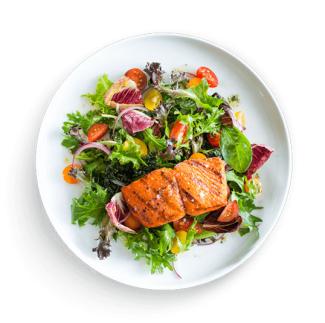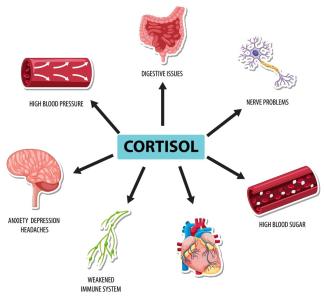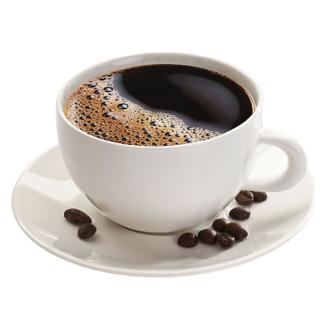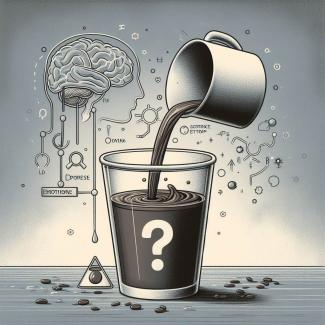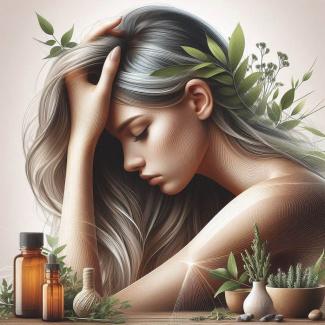
Anxiety is a common mental health challenge faced by millions of people worldwide. While pharmaceutical solutions are often recommended, many individuals are looking for natural remedies to alleviate their symptoms without resorting to prescription drugs. This comprehensive guide delves into the best natural solutions for managing anxiety, backed by scientific studies, practical tips for their use, and an understanding of their mechanisms.
Understanding Anxiety
Anxiety is characterized by feelings of worry, nervousness, or unease, often about an imminent event or something with an uncertain outcome. It can range from mild uneasiness to severe, crippling worry that interferes with daily life. While short-term anxiety is a natural response to stress, chronic anxiety can have long-term negative effects on mental and physical health. Before exploring natural remedies, it's important to understand the different types of anxiety disorders:
- Generalized Anxiety Disorder (GAD): Persistent and excessive worry about various aspects of life.
- Panic Disorder: Recurrent, unexpected panic attacks and constant worry about having more attacks.
- Social Anxiety Disorder: Intense fear of being judged, embarrassed, or humiliated in social situations.
- Obsessive-Compulsive Disorder (OCD): Recurrent thoughts (obsessions) and repetitive behaviors (compulsions).
- Post-Traumatic Stress Disorder (PTSD): Anxiety following a traumatic event.
While pharmaceutical treatments are available, such as selective serotonin reuptake inhibitors (SSRIs) and benzodiazepines, many people prefer to explore natural remedies due to concerns about side effects, dependence, and long-term use.
The Power of Natural Remedies
Natural remedies can be highly effective in managing anxiety, offering a holistic approach that targets not just the symptoms but the root causes. Below, we’ll explore the best natural remedies, their mechanisms of action, and scientific evidence supporting their use.
1. Ashwagandha (Withania somnifera)
Ashwagandha is a powerful adaptogen, which means it helps the body adapt to stress and maintain balance. It has been used for thousands of years in Ayurvedic medicine to treat anxiety, stress, and fatigue.
Mechanism of Action:
Ashwagandha works by reducing cortisol levels, the body’s primary stress hormone. It also supports neurotransmitter function by regulating serotonin and dopamine, two key chemicals in the brain that influence mood and anxiety.
Scientific Support:
A 2019 study published in the Journal of Clinical Psychiatry found that individuals who took 600 mg of ashwagandha extract daily for eight weeks experienced a significant reduction in anxiety compared to the placebo group. Additionally, cortisol levels were lowered, indicating that ashwagandha helps manage the physiological aspects of stress.
2. Valerian Root (Valeriana officinalis)
Valerian root is known for its sedative properties and is often used to treat insomnia. However, it also has significant benefits for individuals suffering from anxiety. Valerian promotes relaxation and reduces feelings of nervousness without causing daytime drowsiness.
Mechanism of Action:
Valerian root increases gamma-aminobutyric acid (GABA) levels in the brain. GABA is a neurotransmitter that inhibits nerve transmission in the brain, calming nervous activity and producing a soothing effect.
Scientific Support:
A meta-analysis of 18 studies published in Evidence-Based Complementary and Alternative Medicine concluded that valerian root significantly reduced anxiety symptoms in patients with Generalized Anxiety Disorder. It has also been shown to improve sleep quality, which is often compromised in individuals with anxiety.
3. Lavender (Lavandula angustifolia)
Lavender has been used for centuries in aromatherapy to promote relaxation and reduce stress. Its calming scent can have a direct impact on the nervous system, helping to alleviate symptoms of anxiety.
Mechanism of Action:
Lavender essential oil contains compounds that interact with the limbic system, the part of the brain that regulates emotions. Inhalation of lavender has been shown to reduce cortisol levels and promote a calming effect.
Scientific Support:
A study published in the Journal of Phytomedicine found that lavender oil capsules were as effective as the pharmaceutical drug lorazepam in reducing anxiety symptoms. Another study in the International Journal of Neuropsychopharmacology found that lavender oil improved sleep quality in individuals suffering from anxiety.
4. Passionflower (Passiflora incarnata)
Passionflower is a traditional herbal remedy for anxiety and insomnia. It has a mild sedative effect and is often used to treat restlessness, irritability, and mild forms of anxiety.
Mechanism of Action:
Like valerian root, passionflower increases GABA levels in the brain, helping to reduce overactivity in the nervous system and promote a sense of calm.
Scientific Support:
A randomized controlled trial published in the Journal of Clinical Pharmacy and Therapeutics showed that passionflower was as effective as oxazepam, a common anti-anxiety medication, in reducing anxiety symptoms. The added benefit was that it did not cause drowsiness or impair cognitive function.
5. Magnesium
Magnesium is a critical mineral involved in hundreds of biochemical reactions in the body, including the regulation of the nervous system. Magnesium deficiency has been linked to increased levels of anxiety and stress.
Mechanism of Action:
Magnesium helps regulate the HPA axis, the body's central stress response system. It also modulates the activity of GABA receptors in the brain, which have a calming effect on the nervous system.
Scientific Support:
A 2017 review published in the journal Nutrients found that magnesium supplementation significantly reduced symptoms of anxiety in individuals with low magnesium levels. The researchers concluded that magnesium plays a critical role in managing the body’s response to stress and anxiety.
6. Omega-3 Fatty Acids
Omega-3 fatty acids, particularly EPA and DHA, are essential for brain health. They reduce inflammation in the brain and promote healthy neurotransmitter function, both of which are important for managing anxiety.
Mechanism of Action:
Omega-3s modulate the production of pro-inflammatory cytokines, which are associated with mood disorders like anxiety. They also influence serotonin and dopamine levels, helping to regulate mood.
Scientific Support:
A study published in JAMA Psychiatry found that individuals with higher levels of omega-3s in their diet were less likely to experience anxiety symptoms. Another study in the journal Brain, Behavior, and Immunity showed that omega-3 supplementation significantly reduced symptoms of anxiety and depression.
7. L-theanine
L-theanine is an amino acid found in green tea that promotes relaxation without causing drowsiness. It is commonly used as a natural remedy for stress and anxiety.
Mechanism of Action:
L-theanine increases the production of alpha brain waves, which are associated with a relaxed but alert mental state. It also enhances GABA, serotonin, and dopamine levels in the brain.
Scientific Support:
Research published in the Journal of Clinical Psychiatry demonstrated that L-theanine supplementation significantly reduced anxiety and improved cognitive function in individuals exposed to stressful situations. The participants also reported improved mood and concentration.
8. Chamomile (Matricaria recutita)
Chamomile is one of the oldest medicinal herbs known to humanity, and its calming properties make it an excellent natural remedy for anxiety.
Mechanism of Action:
Chamomile contains flavonoids that interact with GABA receptors in the brain, producing a calming effect similar to that of anti-anxiety medications.
Scientific Support:
A study published in the Journal of Clinical Psychopharmacology found that chamomile extract significantly reduced symptoms of Generalized Anxiety Disorder compared to a placebo. Participants reported feeling more relaxed and less tense after consuming chamomile tea or extract.
9. Kava (Piper methysticum)
Kava is a plant native to the South Pacific that has been used for centuries to promote relaxation and reduce anxiety. It is especially popular in traditional Polynesian medicine for its calming effects.
Mechanism of Action:
Kava contains compounds known as kavalactones, which act on GABA receptors and reduce anxiety by promoting relaxation without impairing cognitive function.
Scientific Support:
A 2013 meta-analysis published in the Cochrane Database of Systematic Reviews found that kava was effective in reducing anxiety symptoms in individuals with mild to moderate anxiety. The study concluded that kava could be a promising alternative to pharmaceutical anti-anxiety medications.
10. Exercise
Exercise is one of the most effective natural remedies for anxiety. Physical activity reduces the levels of stress hormones in the body, promotes the release of endorphins (the body’s natural feel-good chemicals), and improves sleep.
Mechanism of Action:
Exercise stimulates the production of neurotransmitters like serotonin and norepinephrine, which regulate mood. It also helps regulate the HPA axis, reducing the physiological effects of stress.
Scientific Support:
A study published in The American Journal of Psychiatry found that regular exercise significantly reduced symptoms of anxiety in individuals with Generalized Anxiety Disorder. The researchers concluded that exercise should be considered a primary treatment for managing anxiety.
11. Mindfulness Meditation
Mindfulness meditation involves focusing on the present moment and accepting it without judgment. This practice has been shown to reduce anxiety by promoting relaxation and increasing awareness of thought patterns.
Mechanism of Action:
Mindfulness meditation reduces the activation of the amygdala, the brain’s fear center, and increases activity in the prefrontal cortex, which is involved in rational thought and decision-making.
Scientific Support:
A review published in JAMA Internal Medicine found that mindfulness meditation significantly reduced symptoms of anxiety and stress in individuals with anxiety disorders. The study concluded that meditation could be a powerful tool for managing anxiety without the need for medication.
12. Cognitive Behavioral Therapy (CBT)
While CBT is not a natural remedy in the traditional sense, it is a drug-free approach to managing anxiety that focuses on changing thought patterns and behaviors. It has been proven to be one of the most effective treatments for anxiety disorders.
Mechanism of Action:
CBT helps individuals identify and challenge negative thought patterns that contribute to anxiety. By changing these thought patterns, individuals can reduce their anxiety and improve their ability to cope with stress.
Scientific Support:
A study published in The Lancet Psychiatry found that CBT was more effective than medication in treating anxiety disorders. The researchers concluded that CBT should be the first line of treatment for individuals with anxiety, as it provides long-lasting benefits without the side effects associated with medication.
Managing anxiety without drugs is possible through a combination of natural remedies, lifestyle changes, and mindfulness practices. These approaches not only address the symptoms of anxiety but also promote overall mental and physical well-being.

